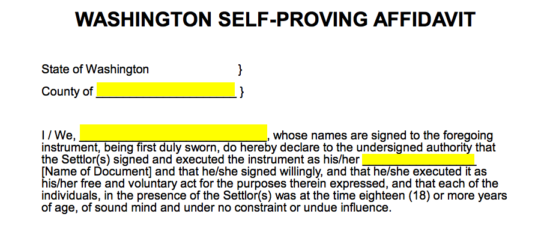
Common Questions About Wills in Connecticut But a holographic will made in a state that allows them, will be valid in Connecticut if it is probated here. For example, Connecticut does not permit a “holographic” will, which is one not signed by witnesses, if it was made in Connecticut. This applies even if it does not adhere to all the requirements listed above. If your will was made in another state, Connecticut law will permit it to be valid as long as it conforms to the laws of the state in which it was made. The will must name at least one beneficiary to receive your estate.Two witnesses, who saw you sign the will, must also sign your will and be in your presence as they do so.You must sign your will in front of two witnesses (Note that your witnesses should not be anyone who will receive a portion of your estate unless they are also an heir as described below).You must be of sound mind and capable of reasoning and decision making.You, the testator making the will, must be at least 18 years old.To make sure your will is valid in Connecticut, if it is made in Connecticut, it must meet the following requirements: If your will is not proven as valid, probate court will distribute your estate according to the provision of law. This is especially true if you want to leave money or property to someone who is not your spouse, child or grandchild, such as a close friend, an unmarried partner, or an organization. But if your will is not valid when it is entered into probate, there’s no guarantee that your estate will pass to your chosen recipients or that it will be divided according to your desires.

Wills are made to ensure that the property and money you’ve accumulated over the years goes to the people you want to receive it and not to anyone you don’t want to receive it.


 0 kommentar(er)
0 kommentar(er)
